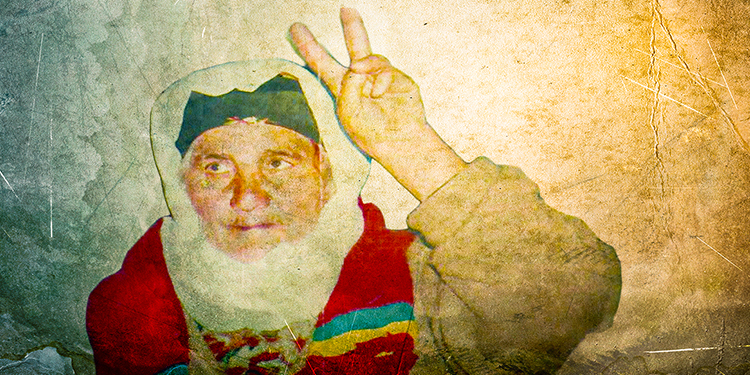CENTRAL NEWS
“It can be difficult to be a woman in every society where the dominant and patriarchal mentality lives, but in a society that has always had an enemy in its history and has always lived with war, it is even more difficult to be a woman. From the identity of being a sister, to the identity of being a girl, then to find the identity of a spouse, the identity of a mother, you have to go through a very difficult path. When the personality of the free woman emerged in the Freedom Struggle, this path was traveled one by one, despite its obstacles .
In Kurdistan, women have always been pioneers. Although the society still had a very marked and present feudal mentality. However, women had their prominent and important roles, sometimes leading tribes, sometimes taking the front seat in the war. Not only with the identity that the society cultivated, but also with the successful tradition with which it was used against it.
Every woman is a building block of life. And every success has its own important story. Mother Uveyş, one of the women whose story should be taught, had a similar story. She taught us both the story of her life and the birth of a son, who pioneered the awakening of society, the celebration of motherhood, the celebration of women. Uveyş, born in the village of Amara in the Halfeti district of Urfa, is married to a villager named Omer and has 7 children. Omer takes on the feudalism of the society he grew up in, perhaps this feudalism is not very effective towards his family, but Mother Uveyş’s attitude towards him is always evident. Uveyş grows up in the hardships of feudal society as a woman with a feudal mentality, she raises her children in the same way.
Under the pressure of society the raising of children, more importantly the raising of girls as children according to tradition, they are raised in fear, the raising of boys is also seen as traditional children, but boys are treated differently than girls, as a continuation of feudal reality. Thus child rearing is also difficult for Mother Uveyş. But no matter how the situation is managed according to the feudal system, there is a child in every family who does not accept these rules imposed by society. He does not want to be the way his parents expect and always goes against these rules. Among the children of mother Uveyş, her son Abdullah does not listen to the family rules. He does not want to carry the feudal identity that society wants to create. Of course, Uveyş’s influence also has an effect on this. But his insistence on himself is an aspect that Mother Uveyş is also responsible for.
Abdullah’s difference from the other children was that; his rebellion, not for the purpose of destruction, but for the purpose of creation, to be recreated and to be lived in the way of real life. He climbed and ran to the mountains. Uveyş’s was also part of this revolt, the mother of the revolt. When his son Abdullah was born as one day in his native Kurdistan, Kurdistan under siege, Uveyş’s also became a figure in this revolt. Perhaps his son had chosen the impossible. His viewpoint seemed to be the same. But when his faith in him began to reach thousands, he had overcome the obvious, the impossible. He had eliminated the impossibility. It was now People’s Day. Mother Uveyş, became the mother of the Sun. She believed in her son that with the people, with millions of people, her son would be able to achieve the impossible. Her son was a pioneer who created the most beautiful form of freedom of women, of children, of young people, of old people, of the people. And the land of darkness was with him the land of light.
Uveyş’s was diabetic and had her leg amputated during treatment in Adana, she was treated there for a year, but died of a heart attack on April 11, 1993. Her body was buried in Amara, where she was born and loved by many.
At that time, she longs for her son to close his eyes to eternity, to become the mother of thousands, because she brought the light of the peoples to the world…”




